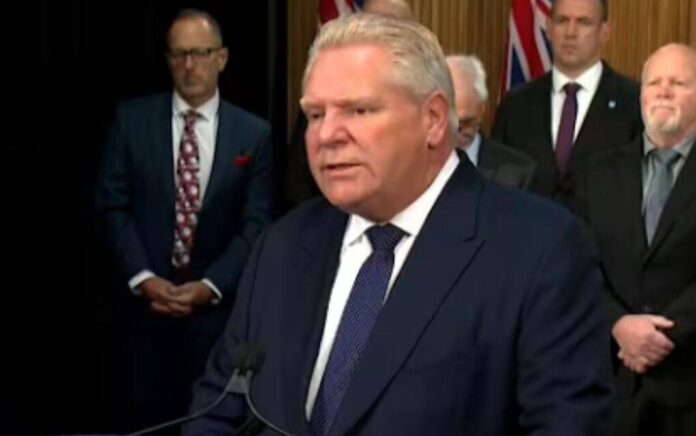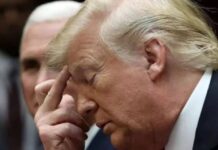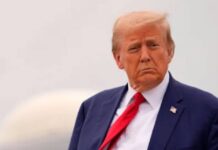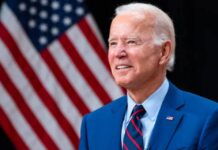
Countries around the world are getting nervous about the prospects of another Trump term. They know he’ll do everything he can to put America’s interests first.
And this foreign nation blindsided Donald Trump after issuing this ominous warning.
Tensions between Canada and the incoming Trump administration appear to be escalating, with a senior Canadian official threatening significant retaliatory measures in the face of proposed U.S. tariffs.
Doug Ford, the premier of Ontario, has suggested cutting off electricity to approximately 1.5 million Americans and banning the import of U.S.-made beer and liquor as part of a potential trade war.
Ford’s remarks come amid concerns over President-elect Donald Trump’s promise to impose a sweeping 25% tariff on products imported from Canada. During a Wednesday meeting with Canadian Prime Minister Justin Trudeau and provincial premiers, Ford stated there is a “100%” certainty that Trump will follow through on the tariff threat.
In response, Ford floated the idea of halting Ontario’s energy exports to the U.S. “It would turn off the lights to a million-and-a-half Americans,” Ford said in an interview with Global News. “If they come at us, we have to stand up for Canadians, we have to stand up for Ontarians.”
Canada is the United States’ largest energy exporter, with American consumers spending roughly $3 billion annually on Canadian electricity, much of it generated through hydropower.
In 2023, Canada exported 33.2 million megawatt hours of electricity to the U.S., representing the highest total from any country—though it accounted for less than 1% of overall U.S. energy consumption. Ontario’s exports primarily serve border states like Michigan and New York.
According to Ontario government officials, Ford is considering a range of “escalation maneuvers” should Trump proceed with the tariffs. Among the options reportedly being discussed are restricting exports of Canadian minerals critical to electric vehicle battery production, banning U.S. companies from Ontario’s procurement processes, and imposing limits on imports of American-made alcohol.
One insider emphasized the seriousness of the situation, saying the province was “deadly serious” about retaliatory measures despite the potential economic consequences. Ontario could face up to $500 million in revenue losses if electricity exports are curtailed.
The situation could escalate further if other Canadian provinces, such as Quebec, join Ontario’s efforts. “Shutting off its electricity is one thing,” a source said to Global News. “Ontario and Quebec shutting off electricity is entirely another thing.”
Ford framed these potential actions as a strong message to the U.S., saying, “You come in and attack Ontario … we’re going to use every tool in our toolbox to defend Ontarians and Canadians across the border. Let’s hope that never comes to that point.”
The remarks highlight the growing rift between Canada and the Trump administration. Trump has positioned tariffs as a cornerstone of his economic strategy, claiming they are necessary to pressure Canada and Mexico to address illegal immigration and drug smuggling.
“As everyone is aware, thousands of people are pouring through Mexico and Canada, bringing Crime and Drugs at levels never seen before,” Trump posted on Truth Social.
He’s also argued that a 25% duty on imports from these countries would incentivize greater border control efforts.
In the meantime, Trump has taken aim at Canadian Prime Minister Justin Trudeau, reportedly joking at a private dinner that Canada could become the “51st state” of the U.S. and referring to Trudeau as “governor” of the “Great State of Canada.”
Trudeau has publicly urged Trump to reconsider the tariffs, warning that such a move would devastate Canada’s economy.
“So your country can’t survive unless it’s ripping off the U.S. to the tune of $100 billion?” Trump reportedly replied during a tense exchange, citing the American trade deficit with Canada.
As the situation unfolds, both nations are bracing for a potential showdown, with trade relationships and economic stability hanging in the balance.
Stay tuned to The Federalist Wire.



















